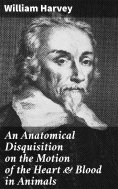The Works of William Harvey M.D
About the eBook
In "The Works of William Harvey M.D.", Harvey presents a comprehensive exploration of his groundbreaking theories on the circulation of blood, a discovery that revolutionized medical science in the 17th century. Employing a meticulous and empirical literary style, Harvey's treatise transcends the popular anatomical understandings of his time, establishing a profound connection between observation and scientific reasoning. His work, which is rich in detailed illustrations and articulate explanations, not only laid the foundational stones for modern physiology but also challenged conventional wisdom, showcasing the transition from Galenic theories toward a more evidence-based understanding of human anatomy and function. William Harvey, an illustrious figure in the realm of medicine, was educated at both the University of Cambridge and the University of Padua, where he was deeply influenced by the scientific inquiries of his contemporaries. His commitment to empirical observation and experimental methodology was likely fueled by the scientific upheavale of the Renaissance. Additionally, Harvey's extensive clinical experiences as a royal physician to King James I undoubtedly shaped his perspectives and heightened his resolve to elucidate the mechanics of blood circulation. For readers keen on delving into the roots of modern medicine, "The Works of William Harvey M.D." offers an essential historical context and scientific rigor that persists in relevance today. It serves not only as a profound academic resource but also as an inspiration for contemporary thinkers and practitioners in the fields of medicine and science.
In this enriched edition, we have carefully created added value for your reading experience:
- A comprehensive Introduction outlines these selected works' unifying features, themes, or stylistic evolutions.
- The Author Biography highlights personal milestones and literary influences that shape the entire body of writing.
- A Historical Context section situates the works in their broader era—social currents, cultural trends, and key events that underpin their creation.
- A concise Synopsis (Selection) offers an accessible overview of the included texts, helping readers navigate plotlines and main ideas without revealing critical twists.
- A unified Analysis examines recurring motifs and stylistic hallmarks across the collection, tying the stories together while spotlighting the different work's strengths.
- Reflection questions inspire deeper contemplation of the author's overarching message, inviting readers to draw connections among different texts and relate them to modern contexts.
- Lastly, our hand‐picked Memorable Quotes distill pivotal lines and turning points, serving as touchstones for the collection's central themes.
About the Author
William Harvey (1578–1657) was a seminal figure in the field of medicine whose contributions significantly altered the course of medical science. An English physician, Harvey is most renowned for his groundbreaking work on the circulation of blood, detailed in his book 'Exercitatio Anatomica de Motu Cordis et Sanguinis in Animalibus' (Anatomical Exercise on the Motion of the Heart and Blood in Living Beings), typically referred to as 'De Motu Cordis'. This pivotal discovery established him as the father of modern physiology. Harvey's scholarly efforts culminated in the posthumous compilation 'The Works of William Harvey M.D.', which features not just 'De Motu Cordis' but also his other substantial inquiries into embryology and various anatomical studies. Harvey's methodology exemplified the transition from a reliance on ancient texts to empirical evidence and experimentation, as he meticulously employed dissections and observations to underpin his theories. His literary style is emblematic of a scholar deeply engaged in the scientific discourse of his time, opting for clarity and thoroughness to articulate his revolutionary ideas. His corpus not just transformed medical theory and practice but continues to underpin modern physiological understanding and research methodologies.
Product Details
Publisher: DigiCat
Genre: Sprache - Englisch
Language: English
Size: 673 Pages
Filesize: 1.3 MB
ISBN: 8596547380108
Published: Sept. 16, 2022




